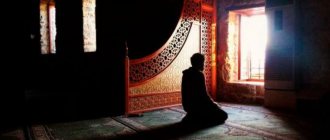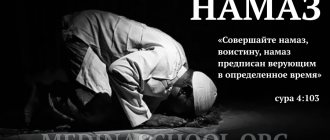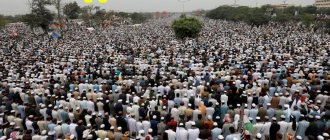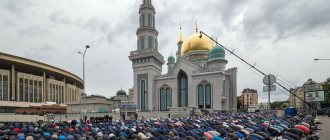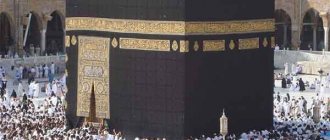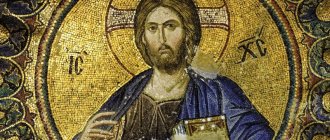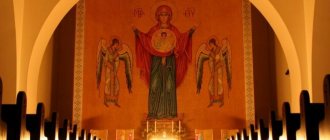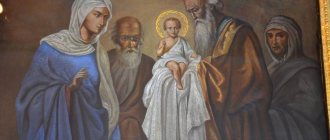- What is juma prayer?
- The procedure for performing Friday prayers Before the start of Juma prayer
- Sunnat prayers before Juma
- Friday Sermon
- How to read Juma'ah prayer
- Namaz after Juma prayer
Juma prayer or Friday prayer is the name in Arabic for one of the obligatory collective prayers in Islam, which Muslims perform in the mosque on Friday at the time at which they usually do the midday prayer - zuhr, that is, the time of juma prayer begins with zuhr. The injunction to perform the Friday prayer, Juma Namaz, is contained in the Holy Book of the Koran:
“ O you who believe! When called for prayer on Friday, then rush to the remembrance of Allah and leave trading. It will be better for you if only you knew ” (Surah Al-Jumua | Collection: verse 9).
This is an obligatory prayer for men who are free and of age and who are not travelers. And juma prayer is desirable for people who are physically weak, for children and women. There are a number of modern theologians who believe that it is undesirable for women, even older ones, to attend Juma prayer on Friday. Muslims are not required to attend Friday prayers if there are adverse weather conditions such as avalanche threats or severe frosts or heavy rainfall.
Sharia ruling regarding Friday prayers
Friday prayer is a personal obligation for every adult free male Muslim of the mind.
And there is no excuse for anyone who leaves her. The proof of this is the following:
1. Words of the Almighty: “O you who believe! When called for prayer on Friday, then rush to the remembrance of Allah and leave trading. It would be better for you, if only you knew” (Collection, 9).
2. The words of the Prophet (peace and blessings of Allaah be upon him): “Either people will stop leaving Friday prayers, or Allah will certainly seal their hearts for them, and then they will certainly be among those who neglect . [Narrated by Muslim]
Features of Juma Prayer
For juma prayer, you must comply with the requirements for obligatory prayers:
- taharat (small ablution),
- covered with shameful places,
- orientation to Qibla.
Also, to perform juma prayer, you need to take into account its features:
- the obligation to perform Juma'ah prayer does not apply to women and applies only to men,
- Juma prayer can begin only when the sun passes the zenith stage, but until the height of the shadow from objects becomes equal to their height.
- regarding the size of the jamaat, there are different requirements put forward by different madhhabs: the Hanafi madhhab requires a minimum number of jamaat - three or five people, and only then the prayer will be counted as Friday; the Hanbali and Shafi'i madhhabs believe that the jamaat should have at least forty people with an imam, and according to According to the scholars of the Maliki madhhab, a jamaat without an imam should consist of twelve people.
Virtues of Friday
Friday is the best day of the week. Allah chose Friday for this community after other communities were ignorant of this day.
And many hadiths mention the virtues of Friday:
1- “The best day on which the sun has ever risen is Friday: on it Adam was created, on it he was introduced into Paradise, and on it he was taken out of it . [Narrated by Muslim]
2- From Abu Hurayrah, may Allah be pleased with him, that the Prophet (peace and blessings of Allah be upon him) said: “Whoever performs ablution properly, and then comes to Friday prayer and listens to the imam, remaining silent until he complete the sermon, and then pray with him, his sins committed between this and the previous Friday prayer, as well as for another three days, will be forgiven...” [Narrated by Muslim]
3- From Abu Hurayrah, may Allah be pleased with him, that the Prophet (peace and blessings of Allah be upon him) said: “Five prayers, performing Friday prayer after the previous one and fasting in each subsequent Ramadan after the previous one atone for what happened between them, if there were no serious sins . [Narrated by Muslim]
What is the name of Friday among Muslims?
It is believed that the name of the holiday, Juma, comes from the Arabic “jamaa” - “to gather”:
This day is called the word "Jumah" because in Arabic it indicates a gathering of people. Before Islam, during the period of “jahiliya” (the period of pre-Islamic ignorance), the Arabs called this day the word “aruba” (the book “Tahrir al-faz tanbih”).
According to one version, this is due to the fact that on Friday believers gather in the mosque to perform collective prayer. It is also believed that on this day Adam and Hawa (Eve) were gathered together by Allah on earth and the presence of numerous benefits and virtues was noted.
Conditions for the validity of Friday prayers
1. Time.
If the Friday prayer is performed before or after the allotted time, it is invalid. And the time of Friday prayer is the time of lunch prayer.
2. Availability of an appropriate number of people. One person cannot perform Friday prayers.
The smallest number for performing Friday prayer is three people.
3. Residence in a certain area. That is, if people live in a certain area, be it a village or a city, and do not wander depending on the season, then they must perform Friday prayer.
As for nomads living in the steppes or deserts (for example, Bedouins) and changing their place of residence depending on the season, they do not have such an obligation to perform Friday prayers in such temporary villages.
And even if they want to do Friday prayer in such villages, it will not be valid.
4. Preceding two sermons with prayer, since the Prophet (peace and blessings of Allaah be upon him) always addressed people with two sermons before performing the Friday prayer.
Friday prayer time
Done in a team
The Friday prayer performed by the inhabitants of the deserts and steppes in their temporary settlements is not valid.
Procedure for performing Friday prayers
Juma prayer today is read the same way as during the time of the Prophet Muhammad ﷺ. There are a number of conditions and features regarding the order and time of performing juma prayer, but most of them overlap with the conditions and requirements for all obligatory prayers. A Muslim should perform a number of actions in order to prepare for Juma prayer; these actions are important sunnat of Friday:
- a Muslim must do a small ablution, and it is also advisable to do a full ablution before performing Juma Namaz;
- for a Muslim it is sunnah to tidy up his appearance: cut his nails, brush his teeth, put on clean, beautiful, festive clothes in accordance with the requirements of Sharia, use incense;
- You should not eat foods that have a pungent odor: onions, garlic, etc.;
- It is advisable to go out early to perform Juma Namaz in order to find a place in the front rows of those praying, to go to prayer on foot, to listen carefully to the Friday sermon of the imam, the totality of performing these actions, according to the hadiths of the Prophet ﷺ, will give the Muslim the opportunity to earn great rewards, every step on the way to the mosque will be recorded as a year of fasting and performing night prayers;
- it is advisable to read Surah “Kahf” - The Cave, which will become for a Muslim the reason for the forgiveness of his sins from the previous to the next Friday.
Before prayer begins on Friday, the muezzin says the second azan, and then the imam reads the khutbah, or special sermon for the jum'ah prayer, which includes two parts, between which the imam should sit for a while. After the sermon has been delivered, prayer of two rak'ahs begins. If Friday prayer is performed, then the midday prayer need not be performed.
Before the start of Juma'ah prayer
- A Muslim who has just come to the mosque should perform two rakats of the greeting prayer “tahiyat al-masjid”; it is read like a regular prayer of two rakats, only with the intention of performing the greeting prayer of the mosque.
- It is also permissible to perform an additional prayer before the adhan sounds.
- After the adhan, it is advisable for the believer to recite the dua: “ Allahumma, Rabbah Khazihi da'uati-tammati, wa-salatil-ka'ima. Ati Muhammadan al-wasilyata wal fadylyata uab'askhu makaman mahmudani-llazi wa'adtah ,” which is translated into Russian as “ O Allah, Lord of this perfect call and prayer that is about to be fulfilled! Give Muhammad the highest position in the Paradise abode, virtue and resurrect him in the most praiseworthy place promised by You ."
Sunnat prayers before Juma
The religion of Allah Almighty is based on the fact that Muslims must perform those forms of worship that were indicated by Allah Almighty or the Messenger of Allah Prophet Muhammad ﷺ, and if there is no indication of such worship, then its implementation should be considered forbidden. In matters of everyday life and various nuances of worldly life, a Muslim takes permissibility as a basis, and all his worldly affairs are permitted until such time as there is an indication that something is forbidden.
Regarding the performance of Friday prayers, it was transmitted through many transmitters that the Prophet Muhammad ﷺ left his house on Fridays, ascended the minbar, and after that the muazzin began to announce the azan. When the adhan ended, the Messenger of Allah ﷺ rose to deliver a khutbah or a special sermon. that the Prophet Muhammad ﷺ performed any sunnah .
The fact that this is exactly what happened during the time of the Prophet Muhammad ﷺ is stated in such sources as “Misbahu Zujaja”, “Fathul-Bari” and “Nailul-autar”.
There is the opinion of the majority of scholars that there is no Sunnah about doing anything before Friday prayer, which would be legalized by the Prophet Muhammad ﷺ . The same opinion was held by Imam Malik, Imam al-Shafi'i, as well as most of the Shafi'is, and this opinion is also widespread among the Hanbalis. Most imams share the same opinion. Also, Sheikh-ul-Islam Ibn Taymiyya and his student Ibn al-Qayyim adhered to the same position, Sheikh al-Albani supported this opinion and scholars from al-Lajnatu-ddaim or the Standing Committee headed by Sheikh Ibn Baz.
Sheikh-ul-Islam Ibn Taymiyyah is quoted as saying that the majority of scholars are unanimous on this issue and believe that there is no specific desired prayer before Friday prayer . The words of Hafiz al-Iraqi are also quoted, who claimed that it was not conveyed from the Prophet Muhammad ﷺ in any hadith that the Messenger ﷺ did anything before the start of Juma prayer.
But if a Muslim himself wants to say a voluntary prayer, then he can do this as many times as he wants until the imam comes out to perform the khutbah.
Friday Sermon
- The imam climbs onto the minbar, after which he says a greeting to Muslims, then the imam sits on the steps of the minbar.
- Next, the muezzin pronounces the adhan, and after that, Muslims pronounce the dua, read after the adhan.
- After this, the imam begins his sermon and performs the first khutbah, during which he pronounces words praising the Creator of the worlds and blessing the Messenger of Allah ﷺ, and after that, in his sermon, the imam raises one of the current topics, which he considers from the point of view of the Holy Quran and the Sunnah of the Prophet ﷺ.
- After the first sermon, the imam sits down, takes a short break, after which he gets up and makes the second khutbah.
How to read Juma'ah prayer
Juma prayer consists of:
- two sermons by the imam;
- two rak'ahs of fard.
After the sermon (khutbah), the entire jamaat team performs two fard rakats, the imam reads the surahs in prayer aloud.
Juma prayer is performed in the same way as the morning Fajr prayer according to actions, but shorter surahs or verses are read.
Namaz after Juma prayer
There are also discussions regarding saying voluntary prayers after the Friday Juma prayer has been performed, and for this there are reasons legitimized by the Prophet Muhammad ﷺ: “ If any of you performs the Friday prayer, let him perform an additional prayer of four rak’ahs after it. ” , and this hadith is reported by Muslim. According to Ibn Umar, after Friday prayer, he and the Messenger of Allah ﷺ prayed two rak'ahs - this is stated in the hadith transmitted by Bukhari. Also in the hadith transmitted by Muslim, another version is proposed, according to which the Prophet Muhammad ﷺ performed two rak'ahs of prayer at home after Friday prayer.
In the Muslim Ummah, one can come across an opinion according to which four rakats of prayer should be read in the mosque after Juma prayer, and at home you can limit yourself to two, referring to the above-mentioned hadiths. Ibn al-Qayyim said that Shaykh Ibn Taymiyyah spoke about this.
In the hadiths of the Prophet Muhammad ﷺ about performing an additional prayer after completing the Juma prayer, a different number of rak'ahs is mentioned, so theological scholars have made different recommendations about the exact number of rak'ahs of this prayer. A Muslim can perform two, four or six desired rak'ahs after completing the Juma'ah prayer.
Two parts of the khutbah
Sharia ruling regarding the two parts of the khutbah
`Two parts of the khutbah are obligatory, and they are also one of the conditions for the validity of Friday prayer.
If the majority of those who come to perform Friday prayers understand Arabic, then the sermon is given in Arabic, as this is part of the guidance of the Prophet (peace and blessings of Allaah be upon him).
This also encourages people to study the language of the Quran. If the majority of those present do not understand Arabic, then there is nothing blameworthy in the fact that the sermon is given in a publicly accessible language.
After all, the purpose of preaching is to edify and teach, and not to simply pronounce words.
At the same time, someone who addresses people with a sermon in a language other than Arabic should try to mention verses and hadiths also in Arabic, so that his sermon is valid from the position of those scholars who consider the Arabic language to be an essential element of preaching.
What makes a sermon more complete?
Some scholars believe that the Friday sermon has no specific pillars.
Therefore, from their position, any sentences and phrases that are popularly called a sermon are sufficient to fulfill this duty.
However, there are some points that make the sermon more complete (according to another group of scholars, some of the following points are the pillars of the khutbah):
1. Praising Allah.
2. Pronouncing two testimonies.
3. Blessing of the Prophet, may Allah bless him and grant him peace.
4. Call to fear of God.
5. Reading something from the Koran.
6. Exhortation.
Desirable actions when addressing people with a sermon
1. Addressing people from the minbar.
2. Greeting people before ascending to the minbar.
3. Dividing between the two parts of the khutbah by sitting for a short time.
4. Brevity of the sermon.
5. Making du'a.
Main day of the week
For Muslims, Friday is considered the “mother” of all days. According to Muslim theologians, only that believer will receive blessings and be worthy of the benefits of this day who awaits it with anxiety and impatience. But the unhappy person will be the careless person who has little interest in this and who “doesn’t even know in the morning what day he woke up.”
Blessed Friday is considered by Muslims to be the most beneficial part of the week. It consists of twelve hours, one of which is the hour when God answers all the prayers of believers.
Actions prohibited in Friday prayer
1. It is forbidden to talk during the imam's sermon.
The Prophet (peace and blessings of Allaah be upon him) said: “If on Friday you tell your companion to “shut up” while the imam is delivering a sermon, then it will be counted as chatter to you . [Reported by al-Bukhari]
2. It is highly undesirable to step over people's heads, unless the person stepping over is an imam.
This is also permissible if there are empty seats in front and a person cannot reach them except through this.
Juma (Pastdargom district). Qibla direction
Distance to Kaaba? km
NEWS
Qibla direction?°
| Locality: Juma (Pastdargom district) | |
| Country: Uzbekistan | Region: Samarkand region |
| Coordinates: 39.715073,66.661381 | Time zone: UTC+5 |
| Calculation method: Muslim Board of Uzbekistan Definition of Asr (madhab): Hanafi | |
| Change settings | |
Desirable actions on Friday
1. Reading Surah “The Cave”. The Prophet (peace and blessings of Allaah be upon him) said: “Whoever reads Surah “The Cave” on Friday, light will shine until next Friday . [Narrated by al-Hakim]
2. Numerous blessings of the Prophet, may Allah bless him and grant him peace.
It was narrated from Abu Mas'ud al-Ansari, may Allah be pleased with him, that the Prophet (peace and blessings of Allah be upon him) said: “Pray for me more on Friday, because truly, there is no one who would pray for me on Friday, so that his prayer is not shown to me . [Narrated by al-Hakim]
3. Complete ablution and use of incense. The Prophet (peace and blessings of Allaah be upon him) said: “Whoever performs ablution on Friday, purifies himself (as thoroughly) as he can, anoints (his hair) or anoints (his body) with the incense (that he has) at home, after what he will go (to Friday prayer), and will not share between the two (sitting next to each other in the mosque), and will pray as much as was predetermined for him, and when the imam comes out, he will remain silent, listening to him attentively, his (sins committed by him) will be forgiven )between this and the previous Friday . [Reported by al-Bukhari]
Is juma prayer equal to midday prayer?
Regarding whether juma can be replaced by zuhr prayer, the opinion of learned theologians representing different madhhabs is of interest: there is no consensus on this issue. It is believed that if there is only one mosque in a locality, to which all the men of the ummah come for Friday prayers, then there is no need to read the afternoon prayer.
It’s another matter when there is more than one mosque in a populated area . In such situations , the overwhelming number of theologians believe that juma prayers in all mosques are self-sufficient, so there is no need to perform zuhr prayer separately .
An exception is made by Shafi'i scholars, who believe that the prayer should be counted as Friday prayer in a mosque, where Juma prayer will begin earlier than in other mosques in the city, and there is no need to perform a separate midday prayer in this mosque, and the recitation of Zuhr prayer will be in such a mosque desirable action or mustahab. But other mosques must perform the midday prayer.
What prayers are read during prayer?
The most important prayers are the following:
- Janazah prayer. This is a prayer for repose, which is read collectively in front of the body of the deceased. At the same time, dua is also read. There are no bows during this prayer; Muslims say it while standing.
- Juma prayer. The prayer consists of two rakat and is read on Fridays at the end of the Friday sermon.
- Eid prayer. It is read collectively on the holidays of Kurban Bayram, when Hajj ends, and Uraza Bayram, ending the fast in Ramadan.
It is also advisable to pray, asking Allah for rain, and during the occurrence of eclipses - both lunar and solar.
At what time do you read which prayer in Islam?
- The Koran prohibits performing namaz at the time of sunrise or sunset, as well as when it is at its zenith. Islamic beliefs warn that reading prayers at such moments rather speaks of worshiping the Sun than Allah, which is unacceptable, because it compares a Muslim with a pagan.
- Therefore, for each of the five prayers of the daily prayer, a certain time is set, and it is calculated for each area with great accuracy - in minutes.
Each of the prayers read throughout the day is given a name:
- An hour and a half before the sun rises, the morning prayer of prayer, called Fajr, is read.
- The midday prayer called zuhr is a prayer recited after the hands of the clock indicate the hour of the day.
- A quarter of an hour before sunset falls on the earth, “Asr” is read - this is the name given to the pre-sunset prayer.
- In the evening after sunset, Maghrib begins for Muslims.
- The prayer called “Isha” is read at any time of the night, which precedes the morning prayer.
How is prayer performed by men and women?
- At the beginning of the prayer, a man must raise his hands to ear level and calmly say the obligatory words: “Allahu Akbar.” The woman raises her hands to her shoulders, palms facing up.
- Then the man folds his hands above the navel so that the right one is on top. During prayer, a woman places them on her chest. The gaze is lowered.
- After reading the istiftah dua and the first surah of the Koran, the Muslim bends down, covering his knees with his palms and, making a bow from the waist with his neck and back straightened parallel to the ground, again says: “Allahu Akbar.” Then, making sure that the number of repetitions is odd, he repeats: “Subhana - rabbiyal - azyym.”
- Straightening up, the worshiper brings his hands to his ears and, saying: “Samia - Allah - estuary - hamidah,” lowers them. Afterwards, with the words “Allah Akbar”, a bow is made to the ground (it is called “sujud”), and again an odd repetition: “Subhana - Rabbiyal - A'la.”
- After bowing, the Muslim sits on his heels (this is called “jalsa”) and, folding his hands on his knees, turns to Allah asking for forgiveness. Then again Sujud and an odd repetition of “Subhana - Rabbiyal - A'lya”. Standing up, the worshiper says “Allah Akbar.”
- In the second rakqat, they sit on their knees and read tashshahud. They complete the prayer by turning their heads to the right and left (while pronouncing “As Salam Aleikum wa Rahmatullahi wa Barakatuhu” ).
What is namaz?
- Namaz is a prayer that followers of the Islamic religion perform every day. It is composed of surahs of the Qur'an that are appropriate to the circumstances. In addition, certain body movements performed by the person praying are obligatory.
- The verses of the Koran and movements form a certain cycle, called a rakat (translated as “circle”), and there are at least two such rakat in each prayer. When praying, a Muslim's face should always be turned towards the qibla , towards Mecca, where the Kaaba is located, which is sacred to adherents of Islam.
- Namaz is a fivefold prayer, i.e., performed 5 times during the day. Sunnis pray . Shiite prayer is three times. The purpose of prayer, as emphasized in the Koran, is to restrain and warn a Muslim from committing a sinful or vile act through prayer.
Namaz is prayer

